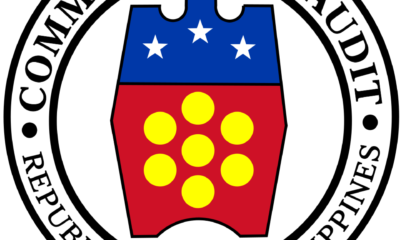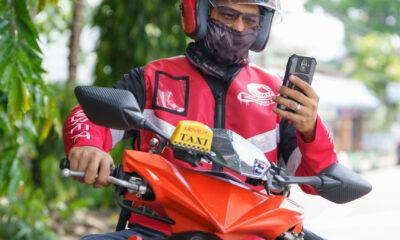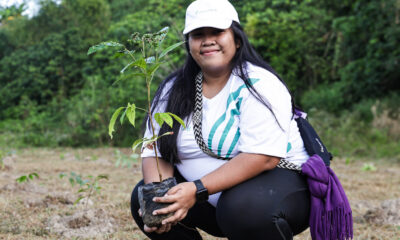NEWS
Advocacy group: Filipinos must be responsible digital citizens to protect themselves from cybercrime
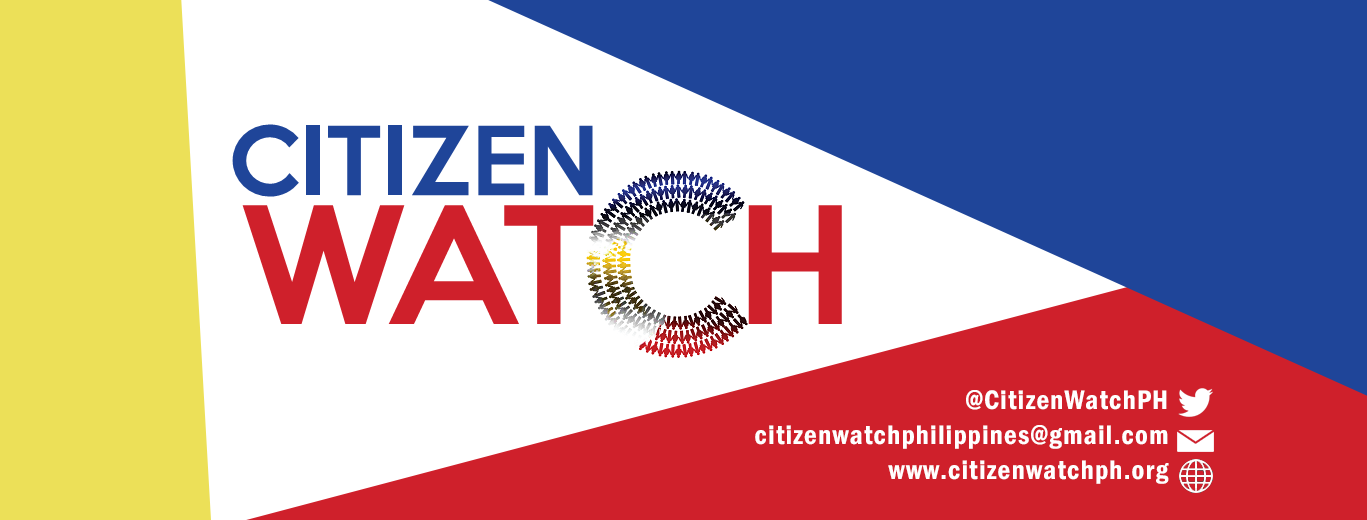
March 18, 2022 7:51 p.m.
FILIPINO consumers must become responsible digital citizens to protect themselves from internet-based crimes, and while there are existing laws against cybercrimes, the government and the private sector must work together to educate and empower the people against falling prey to cybercriminals, an advocacy group said.
“The pandemic has pushed most of us to shift our activities online,” said lawyer Tim Abejo, co-convenor of CitizenWatch Philippines. “We now do our banking, shopping, schooling, over the internet. We order food online and do our work from home. These have their benefits, of course, but they also carry great risk.”
Abejo said that while these internet transactions result in convenience and efficiency, they also bring the danger of abuse and exploitation in many forms. “There are many who are out to take advantage of unsuspecting internet users. We have to make sure that our people arm themselves against these online predators.”
During the pandemic period, the number of cyber tips received by the Department of Justice – Office of Cybercrime tripled to 1.2 million in 2020 from just 400,000 the previous year. Most common among internet crimes are fraud, sexual abuse and exploitation, bullying, and identity theft.
Targeting the vulnerable
Abejo cited the UNICEF finding that prolonged lockdowns have made children and young people more vulnerable because these resulted in extended hours online.
“For two years now, they cannot go out to play or go to school or to meet their friends,” said Abejo.
“Instead, they are constantly online to study, play or socialize. This provides predators the opportunity to manipulate them for their own gains.”
Meanwhile, the public has also seen a rise in incidents of hacking of online bank accounts.
“Sure, there have been arrests. But these people are always one step ahead and they are bound to come up with newer, more sophisticated ways to launch cyber-attacks,” Abejo said.
The Bankers Association of the Philippines said more than P1 billion was lost last year due to cyber fraud.
“These criminals are so ingenious,” Abejo said. “They dupe people into disclosing sensitive information through innocent- or legitimate-looking emails, text messages, or even social media posts.”
He said that ransomware is becoming more prevalent in the Philippines, where malicious software – malware – gains access to a computer system, which would become inaccessible unless the user pays ransom.
Laws and public private partnerships
“To be sure, there is no dearth of laws protecting the public from cybercrimes,” Abejo said.
“The laws range from the broader Cybercrime Prevention Act to data privacy, to preventing online sexual abuse and exploitation, to those protecting the integrity of electronic transactions or strengthening financial literacy for consumers in the digital economy,” he said, citing that the real challenge is making the people aware that these laws do exist and enforcing them in this context.
Abejo proposed that, “Government should incentivize private initiatives to engage the education sector such as the Digital Thumbprint Program of digital solutions company Globe in partnership with the Department of Education that has integrated into the curriculum the training of young students to be knowledgeable in cybersecurity and responsible digital citizenship.”
“More public private engagements in digitally powered interventions can give free online access to workshop modules to arm people with the knowledge and attitude to responsibly and safely navigate the internet,” Abejo added.
A common concern
According to Abejo, empowering Filipinos to be aware of and fight online risks is a collective effort that must be undertaken by the government, the private sector, civil society, and the education sector.
“Specifically, telcos and ISPs should partner with the government to engage in an aggressive and sustained education program to raise awareness of online dangers,” Abejo said.
“Technology is good because it allows societies to be productive and innovative, and reach their potential,” he said. “We must manage the inherent risks and learn how to protect ourselves against those who think they can use the internet to advance their criminal interests.”
“As we are now in a highly digital world, we must choose leaders who can be digital transformation champions to address digital readiness gaps that can delay our recovery from the pandemic crisis,” Abejo said.
NEWS
COA files 4 fraud audit reports worth over ₱275 million for Bulacan flood control projects
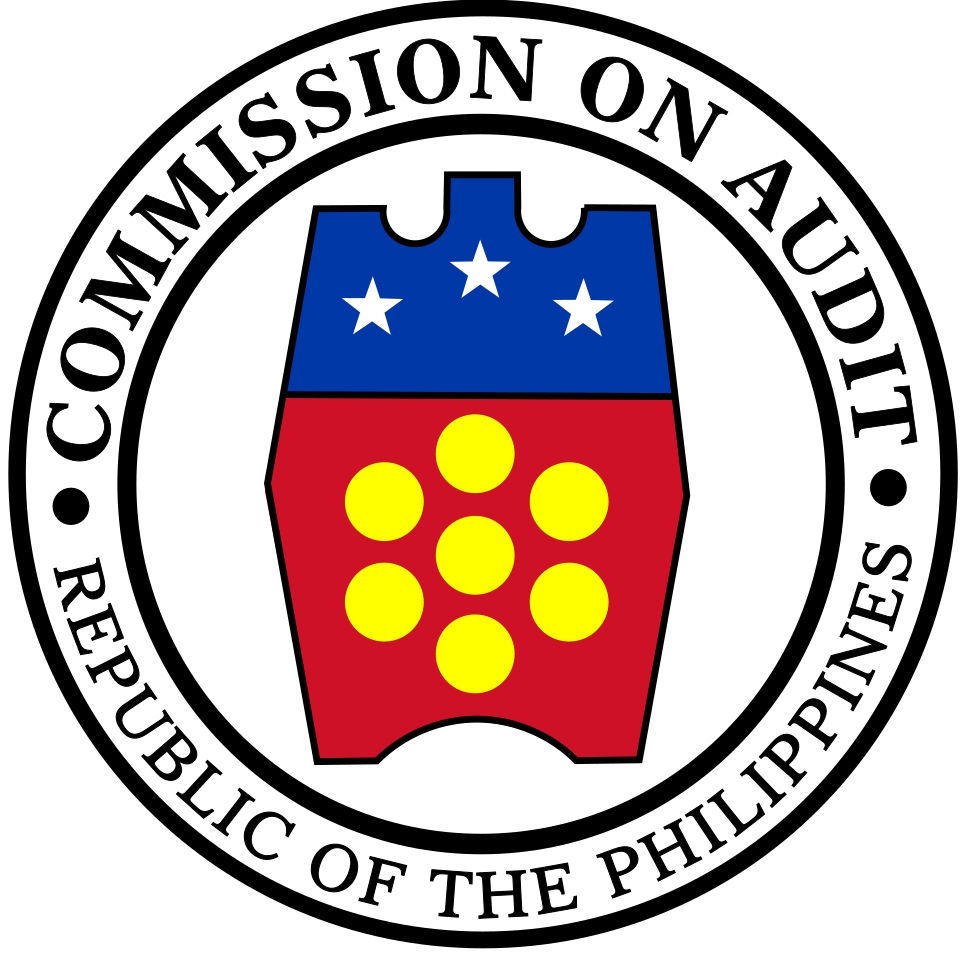
9:19 p.m. February 13, 2026
THE Commission on Audit (COA) has filed four Fraud Audit Reports (FARs) before the Office of the Ombudsman involving more than ₱275 million worth of flood control projects in Bulacan, citing alleged ghost projects, unauthorized site relocations, payments for pre-existing structures, and serious documentation deficiencies.
The projects were implemented by the Department of Public Works and Highways (DPWH)–Bulacan 1st District Engineering Office and awarded to SYMS Construction Trading and Wawao Builders.
COA said the filing of the cases underscores its commitment to transparency and accountability to ensure that public funds intended for flood mitigation are properly used.
Based on physical inspections, geotagged photographs, and historical satellite imagery, state auditors reported recurring irregularities:
Ghost projects: No flood control or riverbank protection structures were found at approved project sites, despite reports that the projects were completed or substantially accomplished.
Unauthorized relocation of sites: In several instances, DPWH representatives allegedly led inspectors to locations different from those specified in approved plans and contracts, without revised plans or written authority.
Payments for pre-existing structures: Satellite imagery showed that some riverbank protection structures already existed prior to contract effectivity, raising the possibility that payments were made for works not newly constructed.
Documentation deficiencies: Required documents, including as-built plans, detailed cost breakdowns, Statements of Work Accomplished, and approved master plans, were either incomplete or missing, undermining the credibility of reported accomplishments and payments.
Audit Coverage
The fraud audit stemmed from a directive issued on Aug. 12, 2025 by COA Chairperson Gamaliel A. Cordoba ordering an immediate review of DPWH flood control projects in Bulacan covering July 1, 2022 to May 30, 2025, following public concerns over alleged ghost projects and corruption.
Disputed Projects
Hagonoy, Bulacan (SYMS Construction Trading)
The ₱67.55-million project involved the construction of a reinforced concrete flood control structure at Barangay Santa Monica (Purok 6 to Purok 7). COA reported that no such structure was found at the designated site despite the project being declared 100 percent complete as of June 11, 2024 and fully paid by June 19, 2024. Auditors also noted indications of unauthorized site changes and missing required documents.
Pandi, Bulacan (SYMS Construction Trading)
The ₱39.60-million riverbank protection project at Barangay Malibong Bata was allegedly built at a location different from that specified in approved engineering plans, without documented authority for relocation. Structures found at both the approved and identified sites could not be conclusively linked to the contract. Several key documents were also missing.
Baliuag, Bulacan (Wawao Builders)
The ₱72.37-million Phase IV riverbank protection project at Barangay San Roque was reportedly constructed at a site different from that indicated in the approved bid plans. The structure bore markings corresponding to another project. Geotagged progress photos used to support payments were taken before the issuance of the Notice to Proceed and pointed to a different barangay. COA also cited overlapping project locations with another flood control contract and incomplete documentation.
Plaridel, Bulacan (Wawao Builders)
The ₱96.50-million flood control structure along the Angat River in the Lumang Bayan section was found to have existing structures at the site at least 90 days before contract effectivity, based on satellite imagery and inspection. The structures bore markings of different contract IDs and differed in design from approved plans. Despite this, the project was reported 100 percent complete within 65 days from contract effectivity. Auditors again noted missing supporting documents.
Possible Violations
COA said those involved may face charges for violations of Republic Act No. 3019, or the Anti-Graft and Corrupt Practices Act, as well as malversation and falsification of documents under the Revised Penal Code. Possible violations of COA Circular No. 2009-001 were also cited.
The audit body said additional reports may be filed with the Ombudsman as investigations continue, in line with President Ferdinand Marcos Jr.’s call for transparency and accountability in government spending.
NEWS
ILO study says TNVS drivers earn way above minimum wage
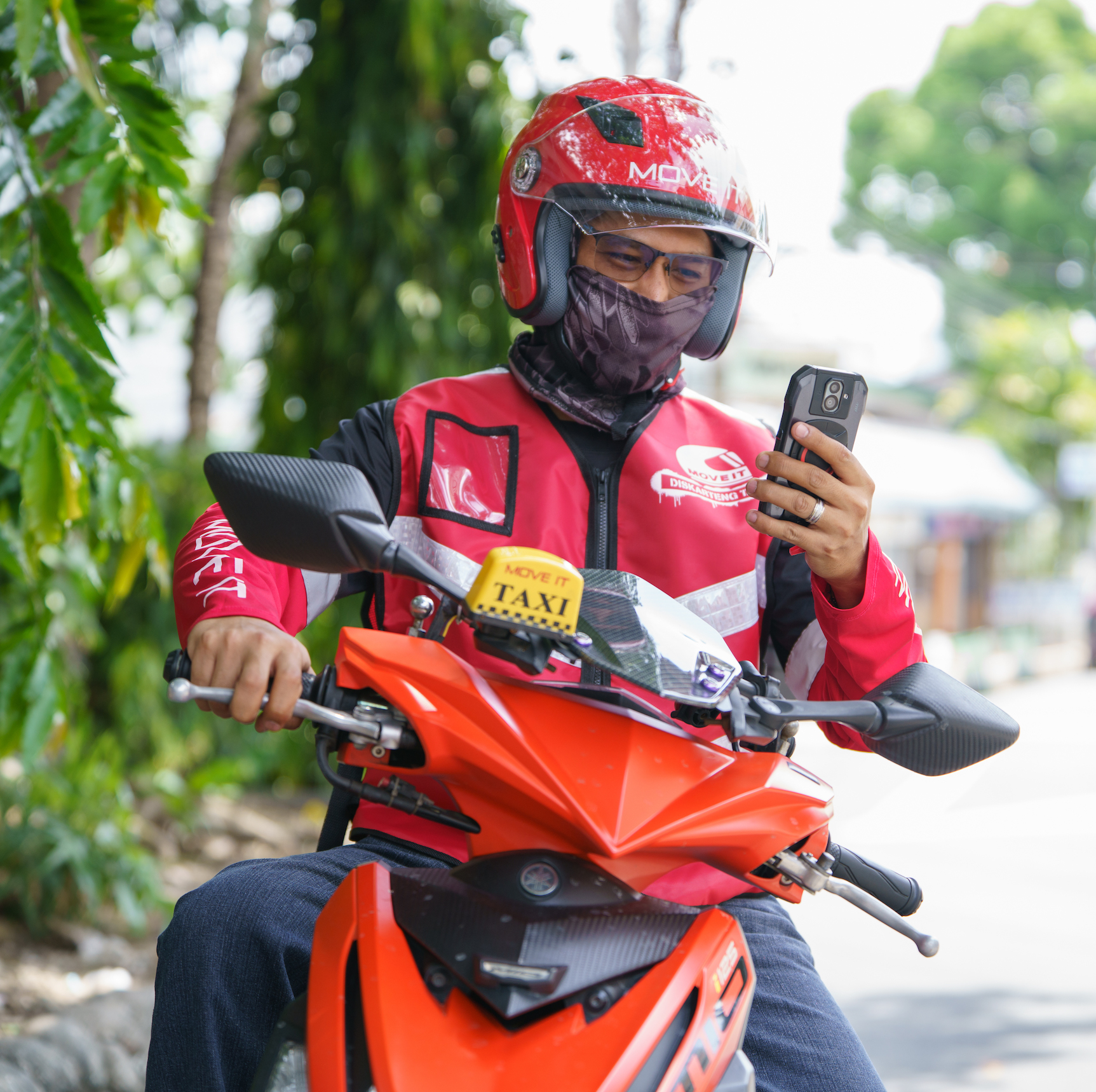
8:49 p.m. February 11, 2026
Transport network vehicle services (TNVS) riders and drivers receive above the mandated minimum wage in the Philippines, according to a recent study commissioned by the International Labor Organization (ILO).
In the “2025 Platform Work Survey: Philippines” presented during the Department of Labor and Employment’s (DOLE) 2026 National Tripartite Conference, it also noted that digital platforms are a major source of livelihood in the country because of the flexible working arrangements they offer.
According to the survey that covered 12 out of 17 regions in the country, the average net earnings of a TNVS rider or driver per week reach P6,704.00, net of costs, as opposed to the average minimum wage of approximately P498 to P695 per day or P4865 weekly set by the government.
The survey was conducted from June to December 2025 and interviewed 400 respondents from nine platforms providing food delivery, logistics and parcel delivery, and ride-hailing services. It has a margin of error of 5 percent.
The ILO commissioned a comprehensive survey on platform work, including delivery and TNVS riders and drivers, to analyze the working conditions of workers in the platform economy, document labor practices, assess the impact of digital platforms on employment, and inform enterprise formalization and social protection strategies.
Based on the ILO study, nearly 90 percent of the riders and drivers indicated that they have access to social protection provided by the platform, including health insurance, insurance for workplace injury, and pension plan or retirement benefit.
Among the top reasons the TNVS riders considered for choosing this industry are flexibility, which allows them to select their schedules and attend to family and personal matters, and decent earnings, which they deemed better than other available jobs.
According to riders and drivers, there are platform initiatives to improve their working conditions, such as increasing earnings and incentives, enhancing training and safety, and improving operational support and communication channels.
The study also noted that ride-hailing app platforms are specifically focusing on facilitating mandatory government benefits—Social Security System (SSS), PhilHealth and Pag-IBIG—to their drivers.
NEWS
DigiPlus deepens investments in Customer Care across BingoPlus, ArenaPlus, and GameZone

6:12 p.m. February 10, 2026
DigiPlus Interactive Corp. (DigiPlus), the pioneer and leading digital entertainment provider behind BingoPlus, ArenaPlus, and GameZone, continues to strengthen its investments and capabilities in customer care, reinforcing its commitment to providing reliable, player-first support across its platforms.
The company reports that its 24/7 customer service operations are now backed by a 450-strong workforce, reflecting sustained investment in high-caliber talent, intensive training, and rigorous service standards. These investments underpin DigiPlus’ efforts to build a scalable customer support organization that champions service quality and upholds Responsible Gaming for players.
“As a leader in digital entertainment, we recognize our responsibility to build and sustain a customer-first service culture,” said Carlos Feliciano, Customer Service Director at DigiPlus. “By designing a scalable, future-ready framework and streamlining processes for simplicity and speed, we aim to make support effortless and intuitive—and elevate the overall customer experience for BingoPlus, ArenaPlus, and GameZone players.”
A more robust training framework to build a high-caliber, human-centered team
Great service starts with a strong training foundation. In 2025 alone, the DigiPlus customer service team collectively logged over 87,000 training hours. DigiPlus has since expanded its customer care training programs to ensure teams are equipped to thrive in fast-paced and complex business operations. Recognizing the need for more immersive learning beyond traditional classroom instruction, the company enhanced its training framework to better prepare customer service teams for real-world scenarios.
The updated approach blends foundational learning with guided, hands-on experience, allowing frontliners to apply skills early while receiving structured coaching from senior team members over an extended, progressive training period. This ensures that BingoPlus, ArenaPlus, and GameZone customer-facing teams are confident, capable, and ready to deliver consistent, high-quality service.
Alongside capability-building, DigiPlus emphasizes human-centered service. Customer care teams are trained to prioritize meaningful conversations over scripted responses, respect players’ time, and resolve concerns more effectively by viewing each interaction as part of a broader customer journey.
Readiness to provide Responsible Gaming support for players
Responsible Gaming remains a key pillar of DigiPlus’ customer care strategy. Customer service teams also undergo a dedicated Responsible Gaming training module that equips them to recognize potential indicators of gaming-related concerns among customers and respond with professionalism, empathy, and appropriate support.
As part of this approach, customer care teams are trained to guide players through available Responsible Gaming tools and safeguards on the platforms, such as options to manage gaming duration or schedule, set limits on deposits or spending, or request self-exclusion or temporary account deactivation. These Responsible Gaming tools are designed and pioneered by DigiPlus to help protect players and encourage more mindful and balanced gameplay.
Where customers require additional well-being support, customer frontliners may also direct players to further resources, including the EmbracePLUS mental health helplines (Smart: 0908-235-2351, Globe: 0956-392-1924; open daily from 12:00 PM to 8:00 PM), which provide Psychological First Aid, and other independent support organizations.
Scaling customer engagement efficiencies in 2026
Looking ahead to 2026, DigiPlus aims to further strengthen customer service operations by driving greater efficiency through innovation. The company plans to continue enhancing processes and responsibly leveraging technology to streamline workflows, improve response times, and enable smarter, more personalized customer support—laying the groundwork for a scalable and future-ready service experience.


